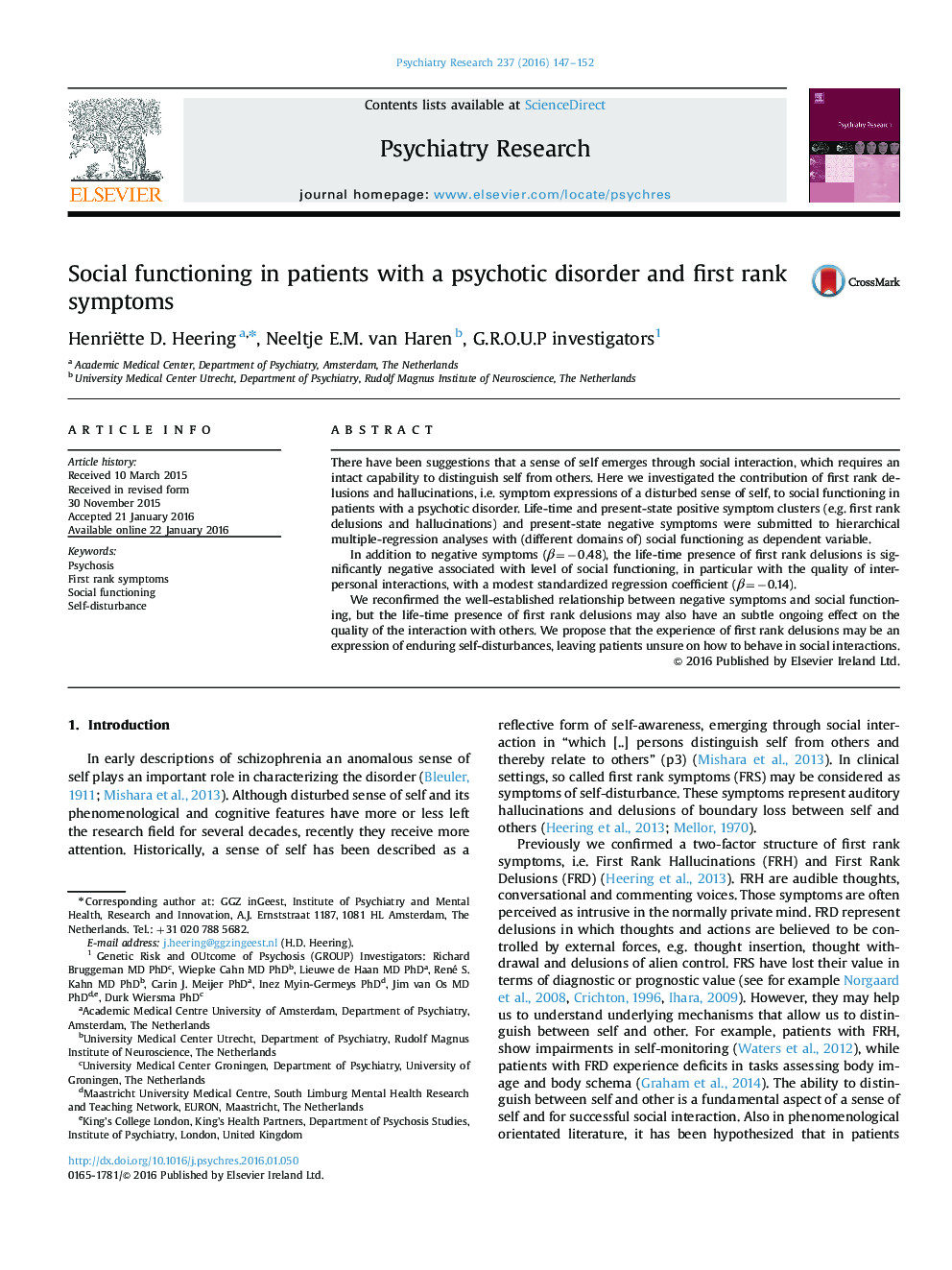| Article ID | Journal | Published Year | Pages | File Type |
|---|---|---|---|---|
| 333106 | Psychiatry Research | 2016 | 6 Pages |
•First rank delusions (FRD) and hallucinations (FRH) are symptoms of self-disturbance.•We investigated the contribution of FRD and FRH to social functioning.•Life-time presence of FRD have an ongoing impact on social functioning.•FRD may be an expression of enduring self-disturbances causing problems in social interaction.
There have been suggestions that a sense of self emerges through social interaction, which requires an intact capability to distinguish self from others. Here we investigated the contribution of first rank delusions and hallucinations, i.e. symptom expressions of a disturbed sense of self, to social functioning in patients with a psychotic disorder. Life-time and present-state positive symptom clusters (e.g. first rank delusions and hallucinations) and present-state negative symptoms were submitted to hierarchical multiple-regression analyses with (different domains of) social functioning as dependent variable.In addition to negative symptoms (β=−0.48), the life-time presence of first rank delusions is significantly negative associated with level of social functioning, in particular with the quality of interpersonal interactions, with a modest standardized regression coefficient (β=−0.14).We reconfirmed the well-established relationship between negative symptoms and social functioning, but the life-time presence of first rank delusions may also have an subtle ongoing effect on the quality of the interaction with others. We propose that the experience of first rank delusions may be an expression of enduring self-disturbances, leaving patients unsure on how to behave in social interactions.
